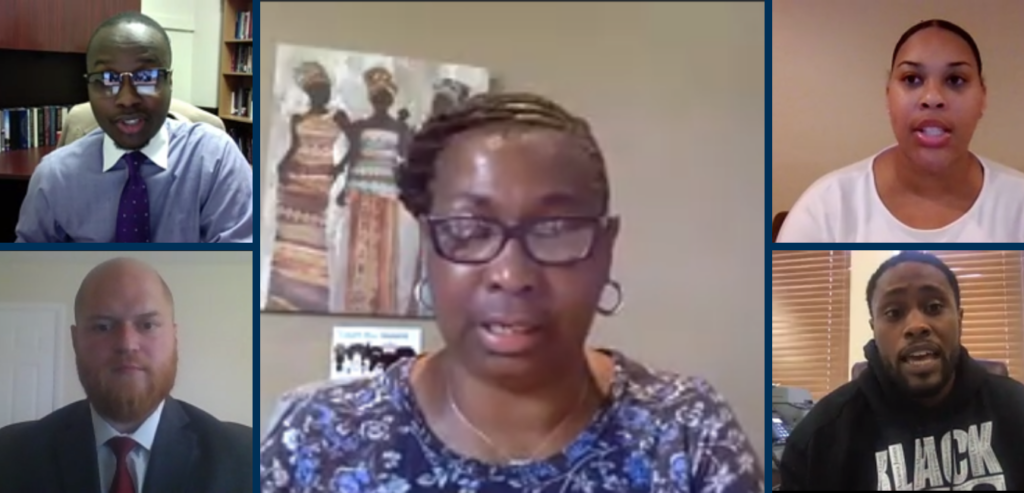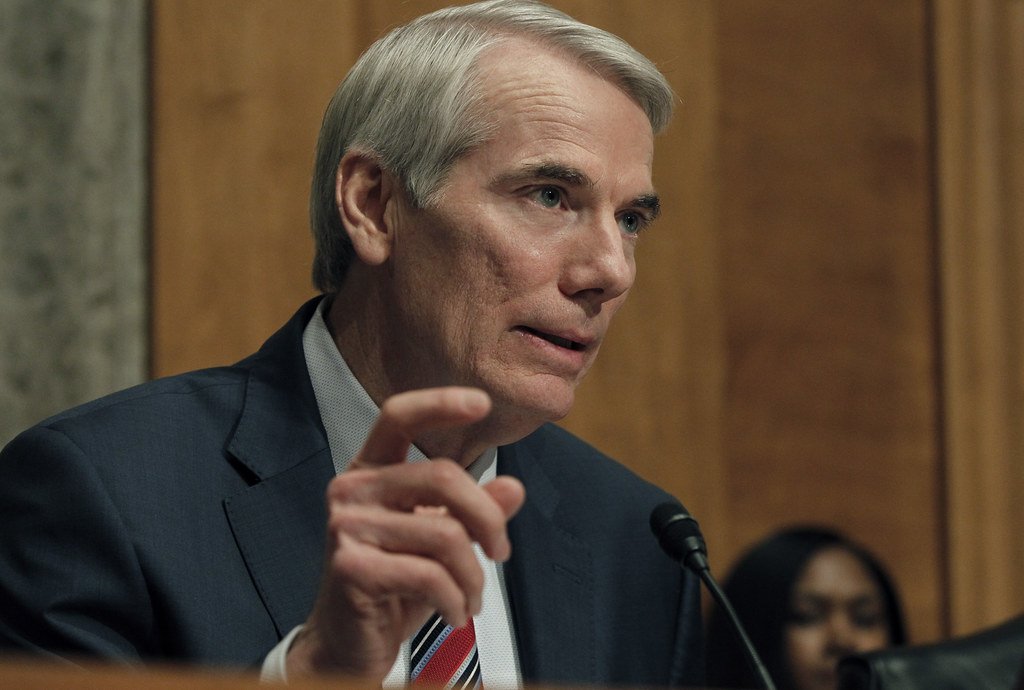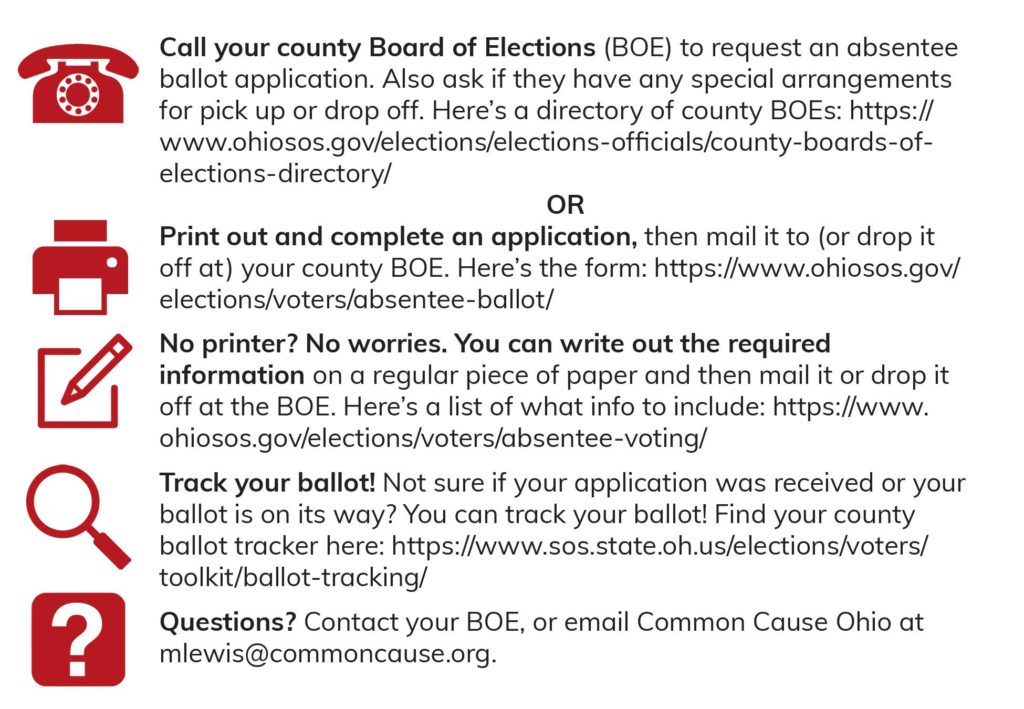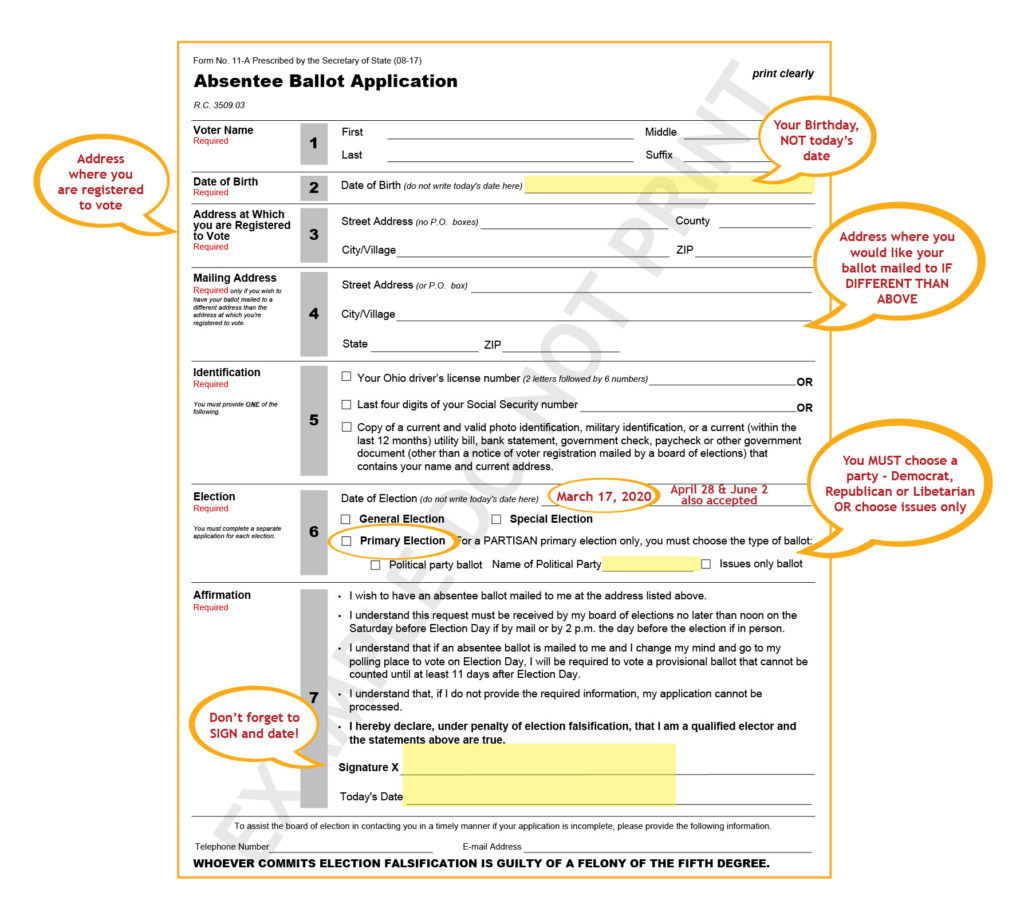
Columbus, OH – Today, voting advocates representing a diverse intersection of voters across Ohio gathered to release a letter to Secretary of State Frank LaRose laying out four policies he can immediately and unilaterally enact to make November’s election safe and accessible during the COVID-19 crisis.
“I do not hear from our leaders that all of our votes matter. I am here to say we will not allow this to happen. We must raise our voices to Secretary LaRose and demand he takes action,” said Rev. Chris Attaway of Tabernacle Church in Cleveland.
The letter is online here and is signed by more than a dozen organizations. It lays out four policies that Secretary LaRose has the authority to enact immediately:
- Prepay postage on absentee ballots and applications.
- Create a statewide online absentee request form and phone number.
- Encourage county boards of elections to offer multiple dropboxes.
- Issue a directive to limit polling place consolidation.
“It is clear that Ohioans cannot rely on their state legislature to pass needed election reforms to make sure we have a safe, secure, and accessible general election. Fortunately, Secretary of State Frank LaRose has existing legal authorities to implement policies that will significantly ease voters’ burden of safely casting a ballot during the ongoing COVID-19 pandemic,” said ACLU of Ohio Policy Strategist Collin Marozzi. “There is a leadership void in our state, and we are calling on Secretary LaRose to use the powers of his office to reaffirm the fundamental right of Ohio voters to make their voice heard.”
A recording of the press call is online here. (Passcode: 1P&Yd=8U)
The letter and advocacy efforts come in response to massive problems during the Ohio primary election this spring.
Rev. Brian Cash of East Mount Zion Baptist Church in Cleveland expressed concern that older members of his congregation would be unable to navigate the confusing absentee system. “We must push Secretary of State LaRose to send prepaid postage to ensure that all of our community members are able to participate in this year’s election,” he said.
Kalesha Scott, a recent Central State University graduate and Ohio Student Association organizer, said: “Many students were unable to vote because of issues with the absentee ballot system, including myself. These four steps that Secretary LaRose can and should take would greatly help college students and young people making their voices heard.”
“While some voters were able to navigate the system during the primary, countless other Ohioans were unable to cast their ballots,” said Petee Talley of the Unity Coalition and Black Trade Unionists. “The General Assembly has had plenty of time to make our election safe and accessible, but has failed to do so. Time has run out. So we are calling on Secretary of State LaRose to do the right thing, and exercise his authority to take these steps.”
The letter is available online at:
https://innovationohio.org/wp-content/uploads/2020/08/LaRose-Letter-Aug-4.pdf
###





